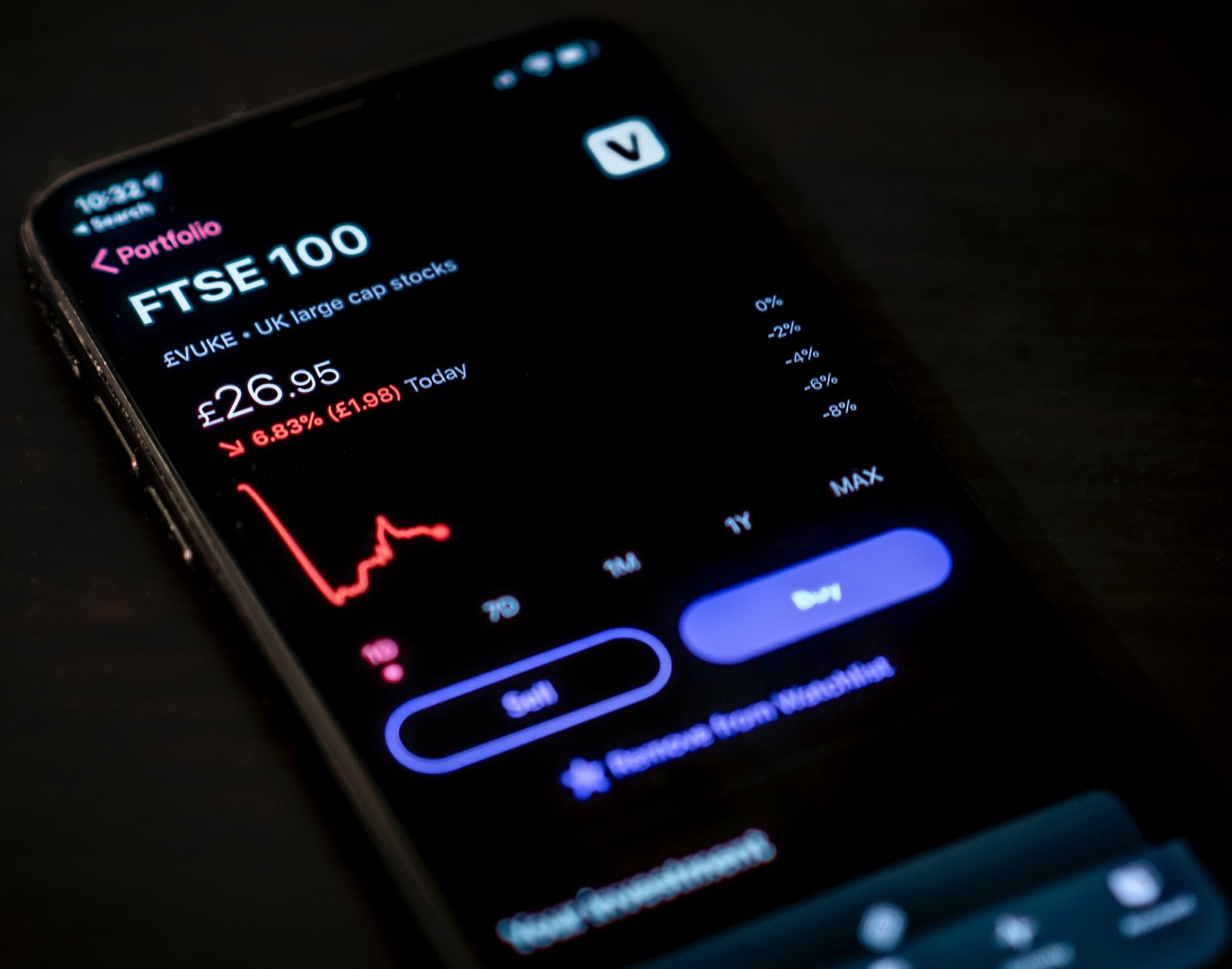This is the first type of financial market we shall explore. Where there is a superscript (g) you can find a more detailed explanation in the glossary section.
Stocks, shares, equities
Stocks, shares, equities, chances are you have probably come across at least one of these terms. These terms simply mean part ownership of a company. When you buy a stock you will own a small share of the company.
There are two types of companies – a private limited company and a public limited company.
- Private limited company – shares only available to private investors
- Public limited company – shares available to public investors
Let us look at Amazon to get a broader understanding:
Amazon did not start as the big company it is today. It started as an online bookstore in Jeff Bezos’ garage back in 1995. As a company expands, it needs to invest in bigger factories, better technology, and to do this it needs significant capital (money). To raise this capital, it can decide to become a public limited company whereby it offers its shares to public investors for sale.
This process is known as an IPO – Initial Public Offering. (g)
When you buy Amazon shares or any other shares, you are essentially betting on the long-term performance and prospects of the company as you now own a slice of the company. As it grows and becomes more profitable, the value of your shares appreciate too, with the opposite also being true. You and the company both share the risks and rewards.
So, what then is the Stock Market?
The stock market is simply a market where buyers and sellers of company shares transact. We have Jeff Bezos selling shares of his company Amazon and buyers who want to own a share of his business (This is a very simplified explanation of the stock market).
These stocks are traded (bought and sold) on a Stock Exchange. Examples of stock exchanges include the New York Stock Exchange (NYSE), London Stock Exchange (LSE), National Stock Exchange of India (NSE).
There are over 2,800 stocks listed on the NYSE and it is the biggest exchange in the world by market capitalisation. (g)
Indices – Measuring the performance of the Stock Market
We shall now look at Indices, which measure the performance of stock markets.
Some of the different indices include:
S&P 500 – Standard and Poor 500 – tracks the performance of the 500 largest U.S stocks by market cap, gives an indicator of the overall performance of the U.S stock market
FTSE 100 – tracks the performance of the largest 100 UK companies
DJIA – Dow Jones Industrial Average – tracks 30 large U.S Stocks. It also gives an indicator of the performance of the market and the economy
Russell 2000 Index – tracks the performance of small cap stocks (g)
*Side note
A stock exchange is different from an index such as FTSE 100, S&P 500.
An exchange is where the shares are listed and traded, an index gives an indicator of the overall performance of the stock market.
When people say “the market” they are generally referring to the S&P 500 index.
Why invest in Stocks?
We are living in a time of historically low interest rates and if your savings account rate is less than the inflation rate, your money is losing value.
For example:
If the inflation rate is 2%
£1000 in 5 years will be worth £922
The market typically gives an average return of about 8-10% per year, much better than the return you get from any savings account.
Investing in stocks can provide you with a source of income (not to be confused with a get rich quick scheme).
You can make money through capital gains – when the value of your shares appreciate and you sell them for a profit.
The second way is through Dividends – your share of company profits since you are a part owner.
For example:
Qualcomm Incorporated is a tech firm that designs, develops, manufacturers and markets digital communication products worldwide and is currently trading at $108.25 per share (at the time of writing).
It pays an annual dividend of $2.60 per share. So for every share you own you will get $2.60 for being a shareholder.
Not all companies make dividend payments and they are also not guaranteed.
What causes the stock price to go up or down ?
To keep things simple, the price of a stock is influenced by Demand and Supply factors.
Some factors that influence the demand of a stock:
- Company outlook and performance
- Market sentiment
- Sector and industry outlook
- Regulatory environment
- Economic factors
So, when there is high demand for a stock, it’s price will increase.
It is important to point out that the stock price or share price does not give an indicator of the intrinsic value of the company (the true value). The stock price only tells us how the market is valuing the company at that particular time, the stock may be over-valued or under-valued.
What are the Risks?
Stocks are considered risky assets as their value can go up or down and returns are not guaranteed. We have seen with the global pandemic and the last Financial Crisis that billions of dollars’ worth of valuations of companies can get wiped off easily. Therefore, when investing long term you should use money that you can afford to lock-away to ride the bumpy rides in markets.
Living in the future
I mentioned this concept in the first post and I wanted to explore it further.
To really have an edge in financial markets, you need to understand that markets are forward-looking.
This means you need to understand where the world is headed and the path to getting there. This entails identifying shifting consumer and industry trends and deducing the sectors and industries that will likely experience the highest growth over a long time horizon.
After identifying the industries with the most growth potential, you can then look for the best stocks in those industries. Ideally you want to find the next Apple, Tesla, Nvidia before they become as big as they are. When you buy is equally as important as what you buy.
Let’s put this into context:
I intentionally chose Amazon for this purpose.
The brick and mortar model has been on a steady decline with many high-street shops shutting down even before the global pandemic. Consumers have been shifting towards online shopping. From this we can deduce that the E-commerce industry is going to experience significant growth for the foreseeable future. A proactive investor would seek to gain exposure in the E-commerce industry and then look for companies that have the strongest growth potential and take a position in the company (buy the stock) much earlier than everyone else. Amazon has had a strong presence in e-commerce for many years and the optimum time to buy Amazon shares was at least 10 years ago.
Therefore, to live in the future you need to have a strong grasp of where the world is headed next and this will give you a significant edge over someone who simply types into google “Best stocks to buy in 2020”.
Some current themes include:
- The shift towards a healthy lifestyle and plant-based foods
- The shift towards renewable energy
- The shift towards autonomous vehicles
- The shift towards an increasingly digital world
- Growth of Fintech
Artificial intelligence (AI) and machine learning will continue to disrupt and revolutionise industries at a remarkable pace, therefore, this is a space worth gaining exposure. Although there are very few pure AI stocks, you can look for companies that leverage AI and machine learning, e.g Nvidia, Alphabet, Microsoft, Amazon, etc.
This is one of many strategies to select stocks using a systematic approach.
A while back, one of my friends saw national grid engineers working outside of his house and thought “We are in lockdown, everyone is working from home, electricity consumption is going to increase – who controls electricity in the UK? Let me take a position in National Grid” and he made a short-term trade and made stellar returns.
Opportunity is everywhere, you just have to learn to see it and capitalise on it. Stock selection is an art and there is no need to over-complicate things.
There is more to stock selection than this, but for now I just wanted to lay the foundation for idea generation.
In the next release, we shall explore the difference between trading and investing.
Please subscribe to the blog using your email to get notified of new posts.
– Adonis
Disclaimer: The information contained in this blog is purely educational and does not constitute as investment advice. Any commentary provided is the personal opinion and philosophy of the author. It is not intended nor should be considered as invitation or inducement to buy or sell any securities noted within. Investing and trading carry significant risks, please contact a financial professional before making any investment decisions.


